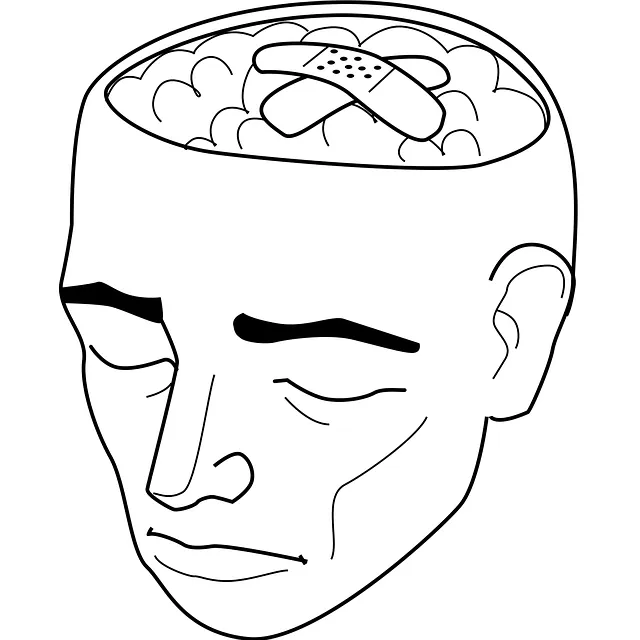Crafting an efficient self-care routine starts with understanding your mental wellness needs. Through introspection, identify stressors and triggers like overwhelming social gatherings or depression. Recognize patterns to develop targeted coping strategies, combining professional resources (e.g., therapy, support groups) from Kaiser in Englewood with personal activities like meditation, journaling, and creative pursuits. Incorporate mindfulness, emotional resilience-building exercises, and self-awareness practices for deeper community connections. Engage with therapeutic services like CBT, mindfulness meditation, and EMDR to identify negative thought patterns and develop positive coping mechanisms. Cultivate mindfulness through daily meditation and journaling for better focus, stress reduction, and mental health insights. Optimize your environment with natural lighting, greenery, and biophilic design principles backed by research. Prioritize cultural sensitivity in mental healthcare practices to ensure inclusivity and trust among professionals and clients.
In today’s fast-paced world, prioritizing mental wellness is more crucial than ever. This comprehensive guide explores how to develop a robust self-care routine tailored to your unique needs. We’ll navigate understanding your mental health triggers and setting realistic goals with actionable strategies. Discover the power of professional support, incorporate mindfulness practices into your daily life, and create healing spaces inspired by Englewood’s resources, such as Kaiser’s mental health services.
- Understanding Your Mental Wellness Needs: Reflecting on Stressors and Triggers
- Setting Realistic Self-Care Goals: Establishing a Personalized Framework
- Exploring Therapeutic Practices: Incorporating Professional Support into Your Routine
- Daily Rituals for Mindful Living: From Meditation to Journaling
- Creating a Supportive Environment: Designing Spaces that Foster Healing
Understanding Your Mental Wellness Needs: Reflecting on Stressors and Triggers

Understanding your mental wellness needs is a crucial first step in developing an effective self-care routine. This involves reflecting on stressors and triggers that impact your well-being. Engaging in introspection allows you to identify patterns, such as specific situations or interactions that lead to increased anxiety or stress levels. For instance, some people may find certain social gatherings overwhelming due to past experiences or struggles with mental health conditions like depression. Recognizing these triggers is essential for creating targeted strategies to cope and manage them effectively.
When exploring your mental wellness needs, consider the unique dynamics of your life, including relationships, work, and lifestyle factors. For example, those seeking mental health services through Kaiser in Englewood might benefit from understanding how their access to care influences their overall well-being. By identifying stressors and triggers, you can begin to implement positive thinking strategies, like practicing mindfulness or engaging in activities that promote anxiety relief, thereby fostering a more balanced and resilient mindset based on mind over matter principles.
Setting Realistic Self-Care Goals: Establishing a Personalized Framework

Developing a mental wellness self-care routine starts with setting realistic goals that align with your unique needs and lifestyle. It’s important to approach this process with introspection and self-compassion, as one size does not fit all when it comes to mental health practices. Begin by identifying areas in your life that contribute to stress or hinder well-being—is it sleep habits, social connections, or managing emotions? This self-awareness is crucial for tailoring a personalized framework.
Englewood residents interested in enhancing their mental health have access to various resources through Kaiser, including therapy services and support groups. Leveraging these professional tools alongside personal initiatives like meditation, journaling, or engaging in creative outlets creates a holistic Self-Care Routine Development for Better Mental Health. Additionally, incorporating empathy-building strategies and self-awareness exercises can foster deeper connections with yourself and others, contributing to overall well-being.
Exploring Therapeutic Practices: Incorporating Professional Support into Your Routine

Incorporating professional support into your mental wellness self-care routine is a crucial step for many individuals seeking to promote emotional well-being and navigate life’s challenges. Engaging with therapeutic practices offers a structured approach to understanding and managing one’s mental health, akin to learning a new language that empowers you to express and explore intricate emotions. Services like those provided by Kaiser in Englewood can be a game-changer, offering accessible pathways to essential mental health care.
To begin, consider reaching out to healthcare professionals who specialize in various therapeutic modalities. Cognitive Behavioral Therapy (CBT), for instance, is a widely recognized practice that helps individuals identify and modify negative thought patterns. Other techniques, such as mindfulness meditation and emotional healing processes like eye movement desensitization and reprocessing (EMDR), can also be transformative. By integrating these professional support systems into your self-care routine, you gain valuable tools to enhance your emotional resilience, foster positive coping mechanisms, and ultimately, promote a deeper sense of inner peace.
Daily Rituals for Mindful Living: From Meditation to Journaling

In today’s fast-paced world, cultivating a mindful living routine is essential for maintaining good mental health. Simple daily rituals like meditation and journaling can significantly enhance one’s emotional healing processes. Starting your day with a few minutes of mindfulness meditation helps to centre yourself, reduce stress, and improve focus. This practice encourages present-moment awareness, which is crucial in navigating the often labyrinthine challenges of daily life. Engaging in consistent self-reflection through journaling allows individuals to process their thoughts and feelings, providing a safe space for introspection. By jotting down experiences and emotions, one can gain valuable insights into their mental health status and identify patterns that may require attention.
For those looking to integrate these practices into their routine, Englewood residents have access to resources like Kaiser, which offers mental health services tailored to individual needs. The key lies in consistency; making these rituals part of your daily regimen, just like brushing your teeth, ensures their effectiveness in promoting overall Mental Health Awareness. Whether through meditation or journaling, these simple acts can profoundly impact one’s well-being, fostering a sense of calm and clarity amidst life’s complexities. Remember that cultivating mental wellness is an ongoing process, and adopting these practices could be a game-changer in your emotional healing journey.
Creating a Supportive Environment: Designing Spaces that Foster Healing

Creating a supportive environment is an integral part of developing a robust mental wellness self-care routine. Your living and working spaces significantly impact your emotional well-being, making it essential to design them with healing in mind. In Englewood, where access to mental health services through Kaiser is readily available, individuals can take proactive steps to optimize their environments for better mental health. This involves incorporating elements that promote tranquility and comfort. For instance, natural lighting and greenery indoors can reduce stress levels and enhance mood, as backed by research on biophilic design.
Moreover, cultural sensitivity in mental healthcare practice plays a vital role in creating these spaces. Understanding the diverse needs of your community and tailoring environments to accommodate them ensures inclusivity and effectiveness. This could mean incorporating cultural elements that hold therapeutic value or ensuring accessibility for individuals with varying physical abilities. A culturally sensitive approach not only improves patient outcomes but also fosters trust between mental health professionals and their clients, as highlighted in public awareness campaigns development initiatives.
Developing a robust mental wellness self-care routine is a transformative journey, one that begins with understanding your unique needs. By reflecting on stressors and triggers, setting realistic goals, exploring therapeutic practices, adopting daily rituals, and crafting a supportive environment, you can create a personalized framework for optimal mental health. Remember, engaging professional support through services like those offered by Kaiser in Englewood can significantly enhance your journey. Through a holistic approach combining personal strategies and expert guidance, you can cultivate resilience, promote healing, and embrace a more fulfilling life.






